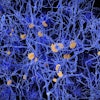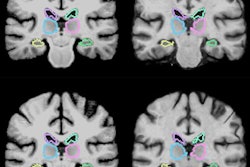Dear MRI Insider,
The health of a neonate begins long before birth and naturally depends greatly on the mother's well-being. In that regard, a new study by French researchers highlights the contribution of MRI in cases of severe acute fetal anemia.
Among some two dozen pregnant mothers, fetal MRI brain scans detected brain lesions cased by anemia that were missed on initial ultrasound scans, which are used as part of the standard follow-up after intrauterine transfusion to bring red blood cell counts back to normal. In addition, MRI results correlated the anomalies with subsequent poor neurological development among fetuses with anemia. More details are available in this Insider Exclusive.
How would you like to speed up image registration of MR scans by, say, 1,000 times? Researchers from the Massachusetts Institute of Technology have created a machine-learning algorithm to accomplish that feat. Their algorithm was able to register 250 MRI brain scans in one to two minutes on a typical computer. The process takes less than one second with a computer that has a state-of-the-art graphics processing unit.
Speaking of speed, Danish researchers have developed a streamlined MRI protocol that could help reduce unnecessary biopsies by as much as 30% in men suspected of having prostate cancer. The biparametric MRI technique potentially decreases image acquisition time to approximately 15 minutes, and it achieved diagnostic accuracy without the need for intravenous contrast.
A new study has shown that women with a higher risk of breast cancer are not taking advantage of supplemental screening breast MRI. In fact, fewer than 7% of women eligible for the exam due to their risk of the disease opted for it when they presented at facilities with screening breast MRI.
In other noteworthy news, researchers using arterial spin labeling MRI found that increased cerebral blood flow in children and young adults with chronic kidney disease correlated with subsequent decreased cognitive function. Interestingly, their findings run counter to the current belief that decreased blood flow is a primary cause of cognitive decline.
Make a visit to the MRI Community at AuntMinnie.com part of your daily routine for the latest news and groundbreaking research from around the world.


.fFmgij6Hin.png?auto=compress%2Cformat&fit=crop&h=100&q=70&w=100)





.fFmgij6Hin.png?auto=compress%2Cformat&fit=crop&h=167&q=70&w=250)











